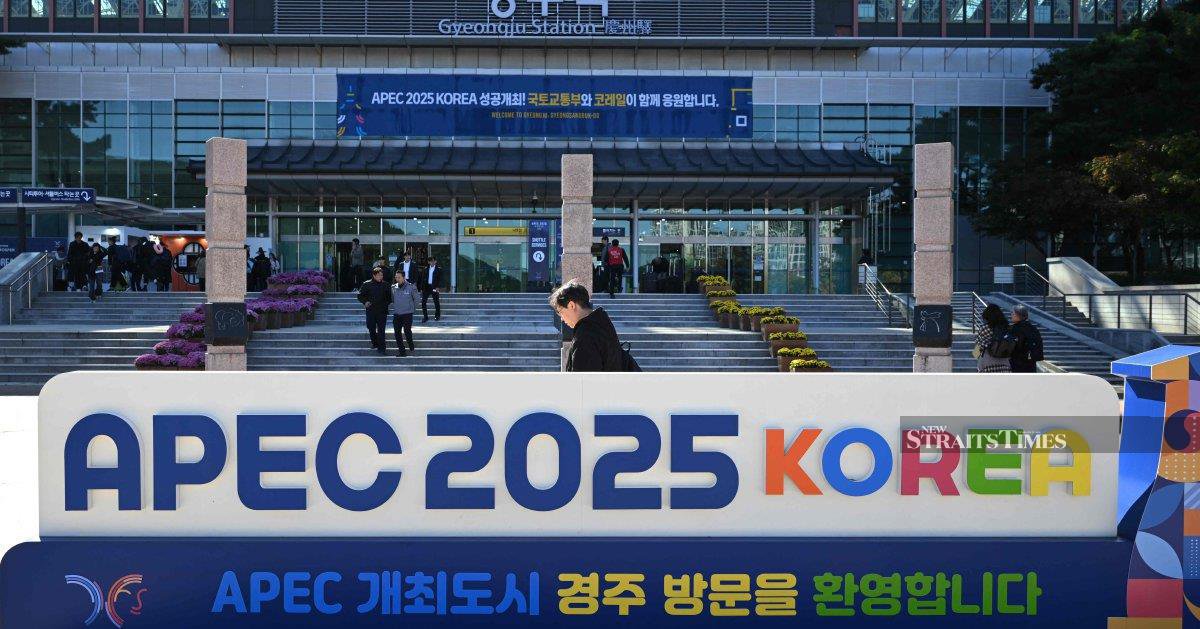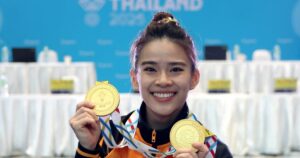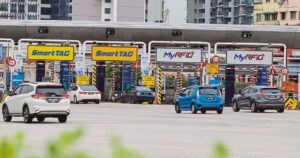SEOUL: Amid serious challenges to the global multilateral order and deepening protectionist moves, South Korea was seen taking a leadership role at last week’s Asia-Pacific Economic Cooperation (Apec) summit by providing a platform for world leaders to discuss the free trade system and shared future tasks, Yonhap News Agency reported.
The summit, held in the southeastern city of Gyeongju, took place at a time when the United States and China were at odds over tariffs and trade issues, and global trade dynamics were shifting dramatically, driven largely by the Trump administration’s aggressive tariff policies.
“Through overnight negotiations up to the day of the summit, we’ve striven to narrow differences among Apec members, including the US, China, Japan and Russia, and ultimately succeeded in reaching agreement on the Gyeongju Declaration and two other key outcome documents,” the presidential office said.
The declaration calls on member nations, which represent more than half of the global economy, to work together to promote cultural and creative industries, which can help spur economic growth.
There had been concerns about a potential failure to adopt a joint declaration, as happened during the 2018 Apec summit in Papua New Guinea during Trump‘s first term, when the US and China failed to reach agreement on WTO reforms and left the host nation to issue only a chair’s statement.
But South Korea “exercised strong leadership to reach a text that both the US and China could agree upon,” the presidential office noted.
South Korea also sought to address the region’s shared challenges, including the development of artificial intelligence (AI) and demographic changes.
The AI Initiative adopted at the summit marked the first leaders-level agreement on AI involving both the US and China, according to the presidential office.
Reflecting the stark reality of shifting global orders, however, this year’s leaders’ declaration omitted direct mention of the World Trade Organisation (WTO), which was typically included in previous Apec leaders’ declarations. Instead, a compromise text was incorporated into the ministerial-level joint statement.
The Gyeongju Apec summit also served as a venue for global diplomacy, hosting the first face-to-face meeting between Trump and Chinese President Xi Jinping since Trump’s second term amid their escalating trade war.
During the talks in Busan on Thursday, the two leaders reached a dramatic “ceasefire” agreement and aligned on the possibility of future mutual visits.
South Korean President Lee Jae Myung wrapped up the Apec summit with some tangible results, as the event was widely regarded as the biggest diplomatic test since he took office in June.
Lee engaged with world leaders to discuss pressing security and economic issues through pragmatic diplomatic approaches, including one-on-one talks with Trump, Xi and Japanese Prime Minister Sanae Takaichi.
Following his summit with Trump, Seoul and Washington reached a long-awaited agreement on a framework tariff deal, including a US$200 billion cash investment in the US, with annual investments capped at US$20 billion, as part of a broader US$350 billion investment pledge.
During talks with Xi, Lee set a positive tone in relations with Beijing, with the leaders agreeing upon the need to cooperate to promote peace on the Korean Peninsula and boost practical cooperation.
© New Straits Times Press (M) Bhd






